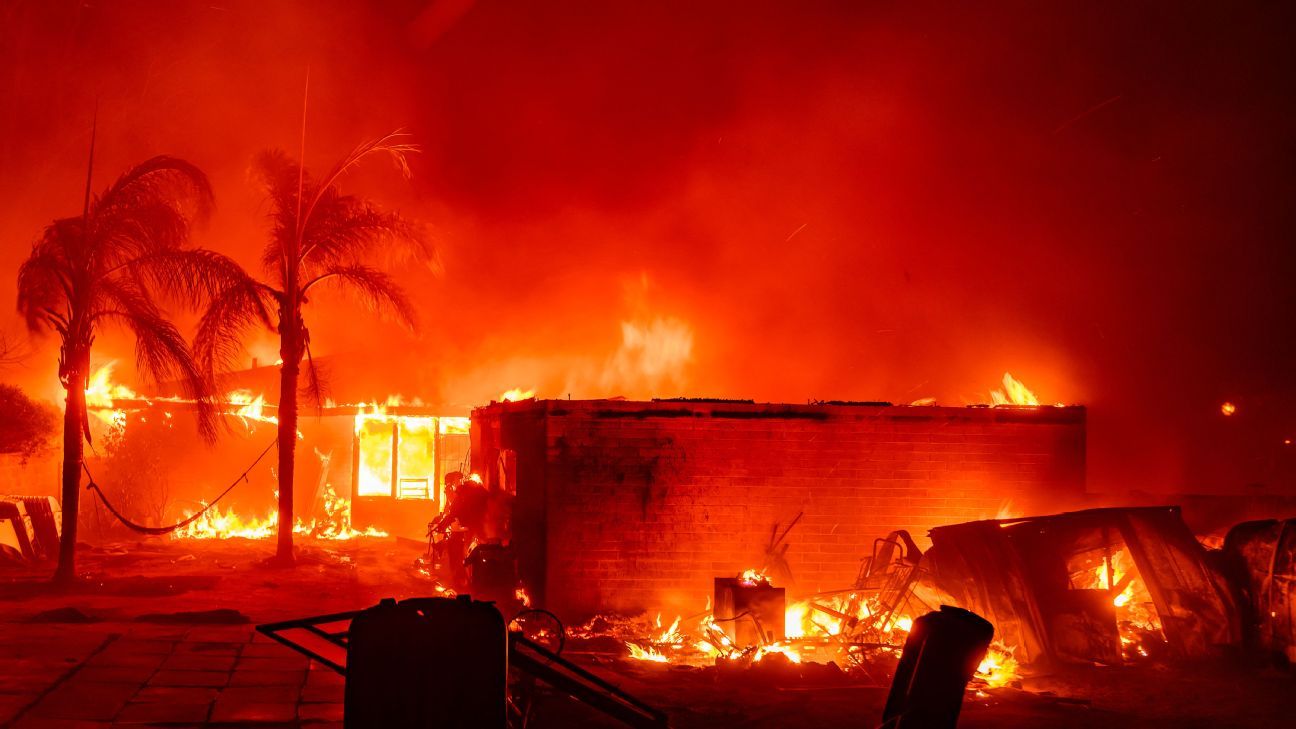LOS ANGELES — As wildfires continue to devastate several areas across Los Angeles, causing thousands to evacuate and impacting air quality, the NFL said it is monitoring the situation’s potential impact on Monday night’s wild-card playoff game between the Minnesota Vikings and Los Angeles Rams at SoFi Stadium.
Three major blazes were burning in the Los Angeles metropolitan area Wednesday, from the Pacific Coast inland to Pasadena, home of the famed Rose Parade. At least 70,000 people were ordered to evacuate — a number that kept changing because evacuation orders were continually being issued, officials said.
“The NFL continues to closely monitor developments in the area and will remain in contact with both clubs and the NFLPA,” the league wrote in a statement.
The Rams, who have a scheduled off day Wednesday and are scheduled to resume practice Thursday, also are monitoring the situation, a team official said. The Rams announced that as of Wednesday morning, no players or staff have been impacted by the fires.
The Los Angeles Chargers, who will visit the Texans on Saturday in a wild-card playoff game in Houston, altered their practice schedule Wednesday to limit players’ time outdoors, a team official said.
The air quality index in the area varied Wednesday from 150 to well above 300, depending on specific locations, with smoke and ash blanketing the region. A rating of 150 is considered “very unhealthy,” according to the system used to measure air pollution. The air quality in Inglewood, California — where SoFi Stadium is located — was 281 as of Wednesday afternoon.
With thousands of firefighters already attacking the flames, the Los Angeles Fire Department put out a plea for off-duty firefighters to help, and weather conditions were too windy for firefighting aircraft to fly, further hampering the fight. Fire officials hoped to get the flights up later Wednesday.
In addition to the two deaths, Los Angeles County Fire Chief Anthony Marrone said many others were hurt in the fires, which threatened at least 28,000 structures.
California’s wildfire season typically begins in June or July and runs through October, according to the Western Fire Chiefs Association, but January wildfires are not unprecedented. There was one in 2022 and 10 in 2021, according to Cal Fire.
The season is beginning earlier and ending later because of rising temperatures and decreased rainfall tied to climate change, according to recent data. Rains that usually end fire season are often delayed, meaning fires can burn through the winter months, the association said.
The Associated Press contributed to this report.
